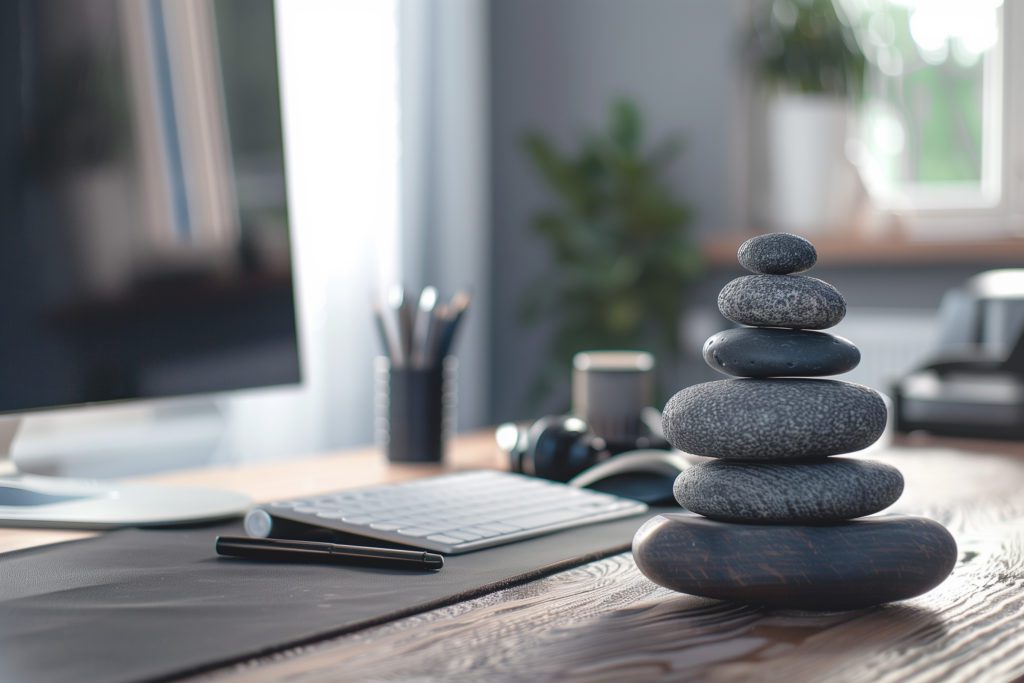
Sleep Strategies for High-Stress Professions: Keeping Your Edge
If you have a high-stress job, it can impact your sleep. Strategies for better sleep include shutting down electronics at bedtime and relaxing before bed.

Are you a firefighter, surgeon, social worker, lawyer, or do you work in another high-stress job? It can be fulfilling to make a difference in others’ lives. But, these jobs can be incredibly stressful — and the stress can negatively affect your life in many ways.
Stress from the job can preoccupy you as you are driving, eating, and interacting with your loved ones. It can lead to job burnout and affect your health. Stress can even contribute to chronic insomnia, keeping you from getting enough sleep.
At any given time, insomnia affects up to 30 percent of adults. Although insomnia isn’t always due to stress, stress can make insomnia worse. Conversely, chronic sleep deprivation can worsen stress. Here’s what you need to know about high-stress jobs and insomnia.
How Work Stress Affects Sleep
In one Norwegian study, scientists analyzed sleep data from more than 5,000 workers. They found that workers who had a heavy workload and conflict at work had more difficulties falling and staying asleep compared to workers who had lower stress at work. The sleep problems were present two years later, showing that stress can cause long-term problems with sleep.
Another study, published in the journal JAMA, examined data from a six-year longitudinal study on work and sleep. Researchers found that if the participants experienced negative or stressful changes at work, they developed problems getting enough sleep even if they didn’t have problems sleeping before.
Effects of Insomnia
Most adults need seven to nine hours of sleep a night. When you get less sleep than this, it can cause serious physical and mental health problems, including:
- Daytime fatigue - Fatigue from insomnia can leave you so exhausted and depleted of energy that you can barely function.
- A lack of motivation - Not getting enough sleep can leave you feeling unmotivated and unable to get through the day.
- Irritability - When you are tired, it can affect your mood.
Difficulty with concentration and focus - A lack of sleep causes brain fog. It impacts your ability to think clearly and remember things. - Headaches - There’s a clear link between sleeplessness and headaches. Both tension headaches and migraines are very common when you don’t get enough sleep.
- Increased risk of accidents - People who suffer from insomnia have a much higher risk of automobile and other fatal accidents. Not getting enough sleep can negatively impact your driving to the point where you are just as impaired as if you’ve had too much to drink.
Chronic insomnia occurs when you get less than this amount of sleep three times per week or more and the sleep problems last for three months or longer. Chronic insomnia can take a heavy toll on your health. It is linked with:
- Depression and anxiety - Chronic insomnia can increase the risk of mental health problems. In one study, individuals who slept five hours or less a night were 2.5 times more likely to develop depression.
- Cardiovascular and heart disease - People who are stressed at work and have insomnia have a three times higher risk of dying from cardiovascular disease.
Tips for Reducing Stress And Sleeping Better
The following tips can help you get a grip on stress and get a better night’s rest.
- Keep a to-do list - Every night, write down a list of things you need to do tomorrow. Then, put these things out of your mind until the morning. This allows your brain to dump or offload things that are causing stress, making it easier to fall asleep. One study found that those who kept a to-do list fell asleep easier.
- Maintain work-life balance - Set boundaries around taking work home in the evenings. Don't let your work follow you home after you clock out.
- Avoid the urge to “relax” with a nightcap - How often do you unwind at the end of a stressful day with a nightcap? It might seem relaxing to kick back with a glass of wine. But, alcohol can greatly impact your sleep. Look for a healthier way to take the edge off.
- Choose a relaxing activity to do before bed - Examples include bedtime yoga, mindfulness meditation, or deep breathing. The 4-7-8 method of deep breathing is one of the most popular deep breathing techniques and is great for reducing stress.
- Don’t lie in bed and worry - If you can’t sleep, get up after 20 minutes and do something else. Find a relaxing, unstimulating activity to do, and keep the lights dim if possible.
- Work on managing stress - If you have a high-stress job, it’s important to take steps to manage your stress. Practice Tai Chi, listen to your favorite music, or spend time in nature. Finally, take time off work and truly disconnect from the job while you are away.
- Disconnect with smartphones and tablets - An hour before bedtime, turn off electronic devices or turn them on Sleep Focus (iOS) or Bedtime mode (Android). This will keep you from checking your email and doing other work-related tasks close to bedtime.
- Develop a solid support network - Emotional support is an important factor for coping with difficult situations. However, if you are dealing with specific stress related to your profession, you might not necessarily find the support you need from family or friends. Consider joining a peer support group run by others in your profession. You can get help from people who have been through something similar.
- Find a therapist trained in cognitive behavioral therapy (CBT-I) for insomnia - CBT-I is an evidence-based therapy that is effective for insomnia. It’s been found to significantly reduce insomnia symptoms in clinical trials. It’s also been shown to reduce depression and daytime fatigue and can help lower stress, as well.
Working in a high-stress job can go hand-in-hand with insomnia. Taking steps to reduce your stress can improve your sleep. It can help you create more balance between your work and personal life.
If you’ve tried the above strategies and you are still having trouble sleeping, talk to your doctor. They can rule out medical causes for insomnia and go over various treatment options that might help.

Written by
Emily Mendez
Emily Mendez is a former therapist and mental health author. She is one of the leading voices in mental health. Emily's writing has appeared in eCounseling, SonderMind, and more. Emily is frequently interviewed by Healthline, Fatherly, INSIDER, Family Circle, and other national media for her advice and expert opinion on the latest mental health topics.
Download Pillow
Get help
Press & News
Legal
Connect
X (Twitter)
Company
Copyright © Neybox Digital Ltd.



